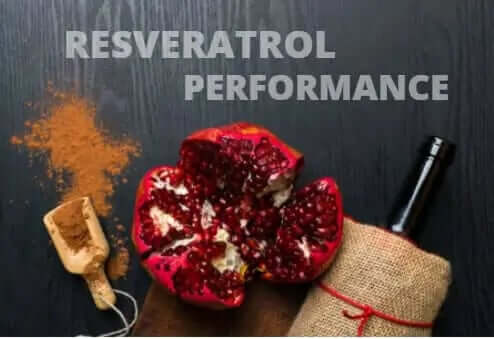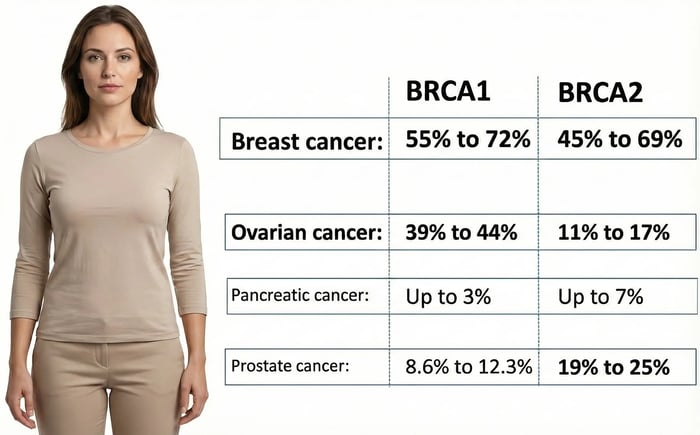Resveratrol Research Breakthrough: Revolutionary Protection Against Neurodegenerative Diseases
Resveratrol has emerged as one of the most promising natural compounds for protecting brain health and preventing devastating neurodegenerative conditions. This powerful polyphenol, found naturally in red grapes, berries, and Japanese knotweed, has captured the attention of researchers worldwide for its remarkable ability to shield our nervous system from damage while promoting cellular longevity.
The Discovery That Changed Everything: Resveratrol's Journey from Wine to Wonder Drug
The story of resveratrol began in the 1990s when scientists made a groundbreaking discovery. This natural compound showed unprecedented ability to positively influence cancer outcomes and cardiovascular disease progression. What started as curiosity about the "French Paradox" – why French people had lower heart disease rates despite rich diets – transformed into a scientific revolution that continues today.
Since those early discoveries, thousands of studies have explored how resveratrol supplements work at the cellular level. Research has consistently shown this compound's ability to:
- Modulate cancer cell growth and proliferation
- Protect cardiovascular health through multiple pathways
- Regulate blood sugar and improve diabetes outcomes
- Shield brain cells from age-related damage
- Reduce systemic inflammation throughout the body
- Activate longevity genes associated with healthy aging
Groundbreaking Mad Cow Disease Study Reveals Resveratrol's Protective Powers
A fascinating area of resveratrol research involves its protective effects against prion diseases, including the infamous Bovine Spongiform Encephalopathy (BSE), commonly known as mad cow disease. This fatal neurodegenerative condition terrorized communities during the late 1980s and early 1990s, as it could transmit from cattle to humans through contaminated meat products.
Prion diseases work by causing normal proteins in the brain to misfold, creating a cascade of damage that destroys neural tissue. Dr. Park and his research team made a remarkable discovery: resveratrol could prevent prion-induced neurotoxicity by activating SIRT1, a crucial longevity protein. Initially, the exact mechanisms remained mysterious, but persistent investigation revealed the answer.
The Autophagy Connection: How Resveratrol Cleans Your Cells
The same research team uncovered that resveratrol's neuroprotective effects stem from its ability to enhance autophagy, a cellular cleaning process published in Neuroscience Research (2012). Think of autophagy as your cells' recycling system – it breaks down old, damaged components and removes toxic buildup, keeping cells functioning optimally.
This discovery has profound implications beyond prion diseases. The autophagy-enhancing properties of resveratrol appear central to its protective effects against major neurodegenerative conditions including:
| Disease | Toxic Protein/Structure | How Resveratrol Helps |
|---|---|---|
| Alzheimer's Disease | Amyloid-beta plaques | Enhances clearance through autophagy |
| Parkinson's Disease | Alpha-synuclein, rotenone | Promotes protein degradation |
| Huntington's Disease | Mutant huntingtin protein | Activates cellular cleanup |
Beyond Neurons: Resveratrol's Effects on Brain Immune Cells
While most resveratrol studies focus on neurons themselves, groundbreaking research published in PLOS One (2012, vol 7, issue 2, e321995) examined its effects on microglia – the brain's resident immune cells. These specialized cells serve as the central nervous system's first line of defense, but when overactivated, they can cause significant damage through excessive inflammation.
The study revealed that resveratrol supplementation influences several critical proteins involved in cellular health and longevity:
Key Proteins Modulated by Resveratrol
PTEN (Phosphatase and tensin homolog): This tumor suppressor protein helps regulate cell growth and division. Resveratrol enhances PTEN activity, providing protection against abnormal cell proliferation.
Akt (Protein kinase B): A central player in cell survival pathways, Akt influences metabolism, proliferation, and cell survival. Resveratrol helps balance Akt signaling for optimal cellular function.
mTOR (Mechanistic target of rapamycin): Perhaps most excitingly, resveratrol modulates mTOR, a protein recently discovered to delay age-related diseases and extend lifespan in various organisms through negative feedback mechanisms.
The Anti-Inflammatory Revolution: How Resveratrol Calms Brain Inflammation
The research demonstrated that resveratrol's anti-inflammatory effects work in both dose-dependent and time-dependent manners. This means higher doses generally provide stronger effects, and benefits accumulate over time with consistent supplementation.
By regulating overactivated microglia, resveratrol prevents these immune cells from causing unnecessary damage to healthy brain tissue. This protective mechanism may represent another pathway through which this compound extends both healthspan and lifespan.
Practical Applications: Making Resveratrol Work for You
Understanding the science behind resveratrol empowers you to make informed decisions about brain health. Here are evidence-based strategies for maximizing benefits:
- Choose Quality Supplements: Look for trans-resveratrol, the bioactive form, with third-party testing for purity
- Consider Timing: Many experts recommend taking resveratrol with a small amount of fat to enhance absorption
- Be Consistent: The time-dependent effects mean regular supplementation provides cumulative benefits
- Combine with Lifestyle: Resveratrol works synergistically with exercise, healthy diet, and stress management
- Monitor Progress: Keep track of cognitive function, energy levels, and overall well-being
The Future of Resveratrol Research: Emerging Possibilities
As our understanding of resveratrol's mechanisms deepens, new therapeutic applications continue emerging. Current research explores its potential in:
- Traumatic brain injury recovery
- Stroke prevention and rehabilitation
- Multiple sclerosis management
- Age-related cognitive decline prevention
- Mood disorders and depression
- Sleep quality improvement
The convergence of autophagy enhancement, SIRT1 activation, and anti-inflammatory effects positions resveratrol as a multi-targeted approach to brain health. Unlike single-mechanism drugs, this natural compound works through multiple pathways simultaneously, offering comprehensive neuroprotection.
Safety Profile and Considerations
One remarkable aspect of resveratrol supplementation is its excellent safety profile. Studies have used doses ranging from 150mg to 5,000mg daily without serious adverse effects in most people. However, as with any supplement, certain considerations apply:
- May interact with blood-thinning medications
- Could affect estrogen-sensitive conditions
- Best avoided before surgery due to potential bleeding effects
- May cause mild digestive upset in sensitive individuals at high doses
Always consult healthcare providers before starting any new supplement regimen, especially if you have existing health conditions or take medications.
Real-World Success Stories
While individual results vary, many people report significant improvements after incorporating resveratrol into their wellness routines. Common benefits include enhanced mental clarity, improved memory, better mood stability, and increased energy levels. These anecdotal reports align with the scientific mechanisms we now understand.
The key to success lies in viewing resveratrol supplementation as part of a comprehensive brain health strategy. Combined with regular exercise, quality sleep, stress management, and a nutrient-rich diet, this powerful compound can help optimize cognitive function and protect against age-related decline.
Taking Action: Your Brain Health Journey Starts Today
The science is clear: resveratrol offers remarkable neuroprotective benefits through multiple mechanisms. From enhancing cellular cleanup through autophagy to calming brain inflammation and activating longevity pathways, this natural compound provides comprehensive support for brain health.
Whether you're looking to maintain sharp cognitive function, protect against neurodegenerative diseases, or simply optimize brain health as you age, resveratrol represents a scientifically-validated option worth considering. The research continues to unveil new benefits and applications, making this an exciting time for anyone interested in natural approaches to brain health and longevity.
Remember, the journey to optimal brain health is a marathon, not a sprint. Start with quality resveratrol supplements, maintain consistency, and combine with healthy lifestyle practices for best results. Your future self will thank you for taking proactive steps today to protect and enhance your most precious asset – your brain.
Frequently Asked Questions About Resveratrol
What exactly is resveratrol and where does it come from?
Resveratrol is a naturally occurring polyphenol compound found primarily in the skin of red grapes, berries (especially blueberries and cranberries), peanuts, and Japanese knotweed. It's produced by plants as a defense mechanism against stress, injury, and fungal infections. The compound gained fame through the "French Paradox" observation and has since become one of the most studied natural compounds for health and longevity benefits.
How does resveratrol protect against neurodegenerative diseases?
Resveratrol protects the brain through multiple mechanisms. It enhances autophagy, the cellular cleaning process that removes damaged proteins and organelles. It activates SIRT1, a longevity protein that regulates cellular health. Additionally, it reduces brain inflammation by modulating microglial cells and influences key proteins like mTOR, PTEN, and Akt that control cell survival and aging. These combined actions help prevent the accumulation of toxic proteins associated with conditions like Alzheimer's, Parkinson's, and prion diseases.
What is the optimal dosage of resveratrol for brain health?
Research studies have used varying doses of resveratrol, typically ranging from 150mg to 1,000mg daily for general health benefits. For neuroprotective effects, many studies use doses between 250-500mg of trans-resveratrol daily. The effects are both dose-dependent and time-dependent, meaning higher doses may provide stronger effects, and benefits accumulate with consistent use. It's best to start with a lower dose and gradually increase while monitoring your response. Always consult with a healthcare provider to determine the right dose for your individual needs.
Can I get enough resveratrol from red wine or food sources?
While red wine contains resveratrol, the amounts are relatively small – typically 1-2mg per glass. To achieve the therapeutic doses used in research studies (250-1,000mg), you would need to consume impractical and unhealthy amounts of wine. Food sources like grapes, berries, and peanuts also contain resveratrol but in even smaller quantities. For therapeutic benefits, high-quality resveratrol supplements provide standardized, concentrated doses without the negative effects of excessive alcohol consumption or caloric intake from foods.
How long does it take to see benefits from resveratrol supplementation?
The timeline for experiencing resveratrol benefits varies depending on the specific health goals and individual factors. Some people report improved energy and mental clarity within 2-4 weeks. However, the neuroprotective and longevity benefits develop over months to years of consistent use. Research shows that resveratrol's effects are time-dependent, meaning benefits accumulate and strengthen with continued supplementation. For optimal results, plan on at least 3-6 months of consistent use while maintaining realistic expectations about gradual improvements.
Are there any side effects or interactions with resveratrol?
Resveratrol has an excellent safety profile with minimal side effects for most people. At high doses (above 1,000mg), some individuals may experience mild digestive upset, nausea, or diarrhea. Important interactions include blood-thinning medications (warfarin, aspirin), as resveratrol may enhance their effects. It may also interact with certain medications metabolized by the liver. People with estrogen-sensitive conditions should use caution. Always consult your healthcare provider before starting resveratrol, especially if you take medications or have health conditions.
What should I look for when choosing a resveratrol supplement?
Choose supplements containing trans-resveratrol, the bioactive form that provides health benefits. Look for products with third-party testing for purity and potency. The supplement should clearly state the amount of trans-resveratrol per serving, not just "resveratrol complex" or grape extract. Consider products with enhanced bioavailability through micronization or combination with piperine (black pepper extract). Avoid products with unnecessary fillers, artificial colors, or preservatives. Reputable manufacturers provide certificates of analysis and good manufacturing practice (GMP) certification.
Can resveratrol help with brain fog and cognitive decline?
Yes, resveratrol shows promising effects for improving cognitive function and reducing brain fog. By enhancing autophagy, it helps clear cellular debris that can impair neural function. Its anti-inflammatory effects reduce brain inflammation often associated with cognitive difficulties. Studies show resveratrol improves cerebral blood flow, enhances memory formation, and protects against age-related cognitive decline. Many users report clearer thinking, better focus, and improved memory with consistent supplementation. Combined with lifestyle factors like exercise and quality sleep, resveratrol offers a natural approach to maintaining sharp cognitive function.
Is resveratrol safe for long-term use?
Current research indicates resveratrol is safe for long-term use when taken at appropriate doses. Studies lasting up to two years have shown no significant adverse effects with daily supplementation. In fact, the benefits of resveratrol appear to be cumulative, with longer use providing greater protective effects. The compound has been consumed in foods and wine for centuries without known toxicity. However, as with any long-term supplement regimen, periodic evaluation with your healthcare provider is recommended to ensure continued appropriateness for your individual health status.
How does resveratrol compare to other brain health supplements?
Resveratrol offers unique advantages compared to other brain health supplements. Unlike single-target compounds, it works through multiple pathways simultaneously – autophagy enhancement, SIRT1 activation, anti-inflammation, and mTOR modulation. This multi-targeted approach provides comprehensive neuroprotection. While omega-3s support brain structure and B-vitamins aid neurotransmitter production, resveratrol specifically addresses cellular aging and protein accumulation. It complements other supplements well and can be part of a comprehensive brain health stack including omega-3s, curcumin, and lion's mane mushroom for synergistic benefits.







